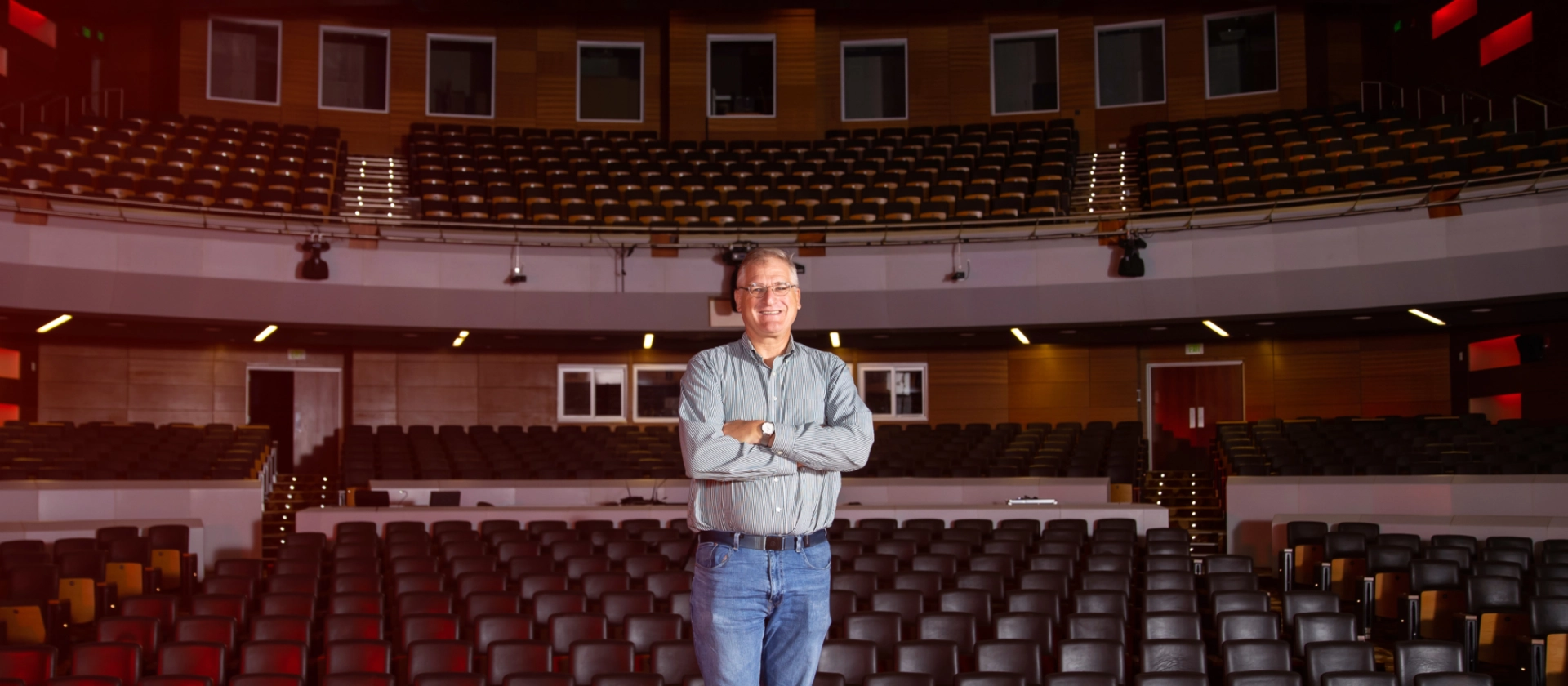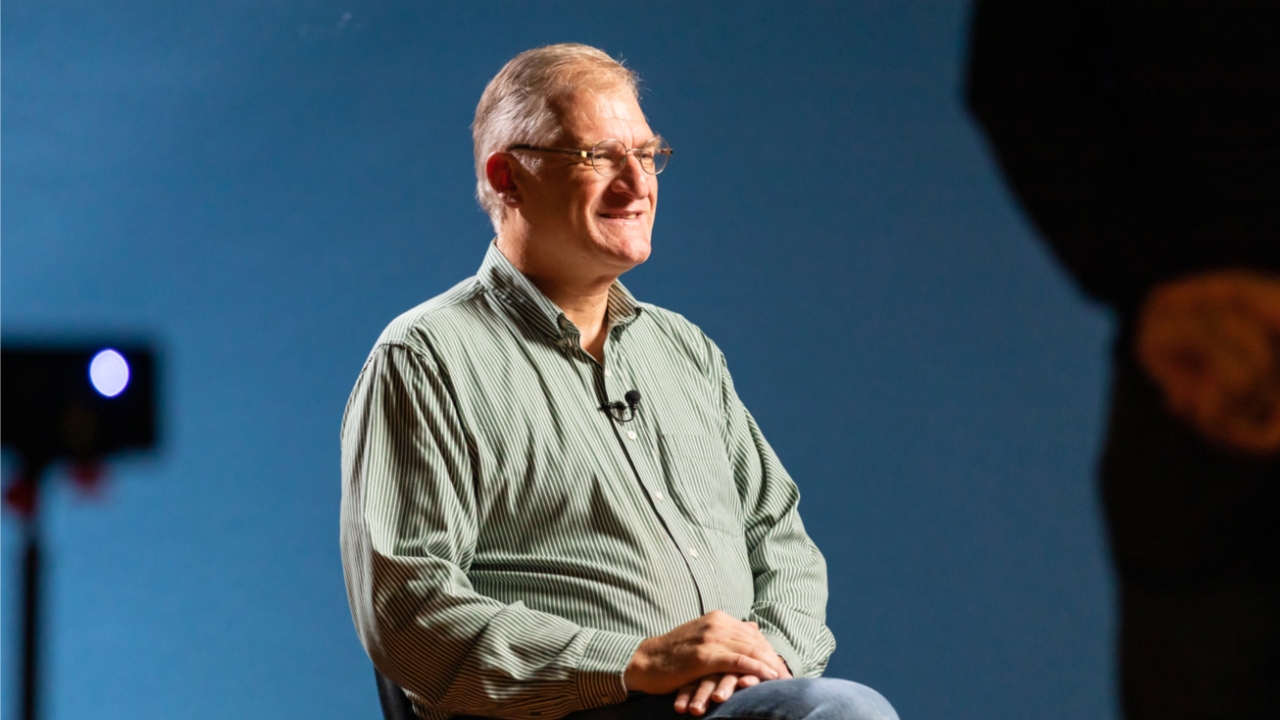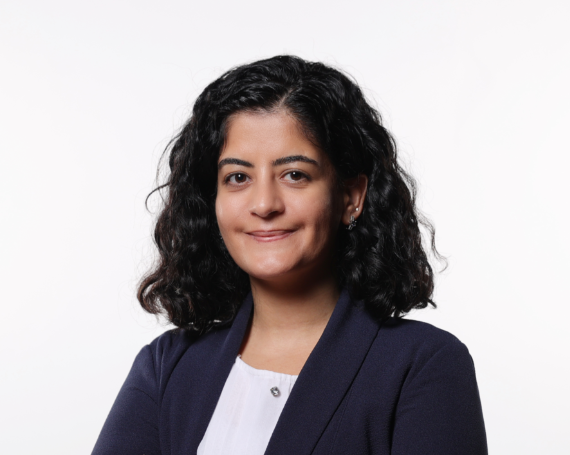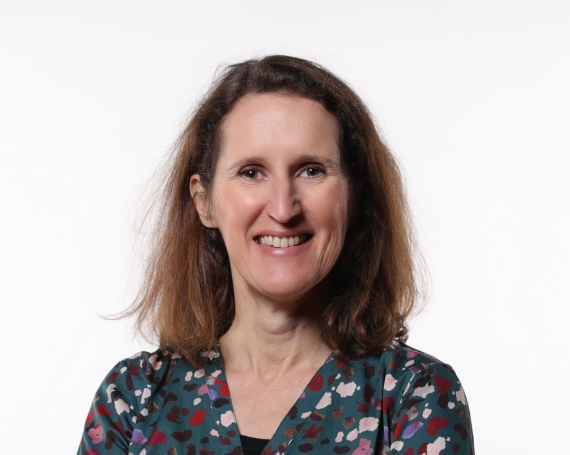
Eric Feron
Professor of Electrical and Computer Engineering

Feron’s passion for science, engineering and education is the cheery underscore to everything he says.
Engineering Complex Systems with Creative Curiosity
A native of Paris, France, Professor Eric Feron’s early education was “very much oriented towards mathematics.” As a child, he would supplement his mathematical schooling during the week with creative hobbies at the weekend, and he attributes his passion for engineering to these two complementary pursuits. “Engineering brings together the mathematical sciences and the physical sciences,” he explains, which is why he found such enjoyment in “building things which at first would break,” then figuring out how to make them work. “As a result,” he says, “I was able to develop both a creative mind and a scientific mind.”
Feron remained in France for the early part of his academic career, obtaining his bachelor’s degree from École Polytechnique and his master’s degree from École Normale Supérieure, both in Paris. As an undergraduate, he also received specialist training as an officer of the watch aboard the nuclear submarines of the French Navy. He subsequently moved to the United States, where he completed his Ph.D. at Stanford University in California before going on to work as a professor at both Massachusetts Institute of Technology (MIT) and Georgia Institute of Technology. “In the meantime, I also kept my interests in France,” he adds, proudly, “by working with the aeronautics industry, especially in Toulouse.” This work included appointments at the prominent aeronautical engineering schools, Institut Supérieur de l’Aéronautique et de l’Espace and École Nationale de l’Aviation Civile.
As co-leader of KAUST’s Robotics, Intelligent Systems, and Control (RISC) Lab, Feron is engaged in a variety of projects involving intelligent autonomous systems. Since he arrived in 2019, a key topic of interest he has covered has been “underwater mapping and manipulation,” which, through a partnership with the Red Sea Research Center, seeks to “develop innovating underwater robotic solutions to the problems presented to us by our world-class scientists.” This partnership draws not just on Feron’s engineering knowledge, but on his formal naval training, to strengthen the connection between KAUST and the Red Sea.

The RISC Lab is also focused on key issues in modern aerospace engineering, from the control of unmanned aircraft to the optimization of large-scale air traffic control systems. “I felt really inspired,” Feron shares, “by issues of safety with large systems, especially air transportation.” One such issue he’s currently working to address is that of commercial aircraft formation flight. “Just like geese,” he explains, “when they fly in formation, aircraft can fly longer.” Of course, formation flight requires flying in close proximity, which presents a danger to aircraft (and any people aboard) that it doesn’t present to geese. The mitigation of any risk to human life is therefore central to Feron’s work. By ensuring that every single aspect of the system is meticulously considered to maximize safety above all else, he can provide peace of mind as well as efficiency. This, he believes, is “what allows billions of people to board aircraft without any worries, despite the fact that the distance between absolute safety and drama is very small.”
In addition to pushing the boundaries of aerospace research and improving the capabilities of the global aviation industry, Feron is eager to maximize his utility within his adopted home, seeing his “primary role at KAUST as being a good servant to the Saudi community.” He is currently exploring ideas around creating a one-semester course called, “Aviation from A to Z, with A being ‘How Planes Fly’ and Z being ‘How We Arrange Air Traffic.’” Feron feels that such a course could be beneficial to people from a multitude of backgrounds across Saudi Arabia. His hope is that it would help “develop a collective consciousness” when it comes to the “complex ecosystem” that is the aviation sector, thus ensuring that the Kingdom can take its place at the leading edge of further technological advancement.
Feron’s passion for science, engineering and education is the cheery underscore to everything he says. Through every stage of his career, he has sought opportunities to expand his own mind and the minds of his students, which he actively tries to do each day at KAUST by nurturing their curiosity in the same way he nurtured his own. “If the mind is not curious,” he says, “then we’re not going to get the basic elements that allow us to be creative; that’s how science and technology live together and really complement each other.” Having supervised more than 50 Ph.D. graduates and more than 250 master’s graduates, he has certainly proven this to be an effective approach.


